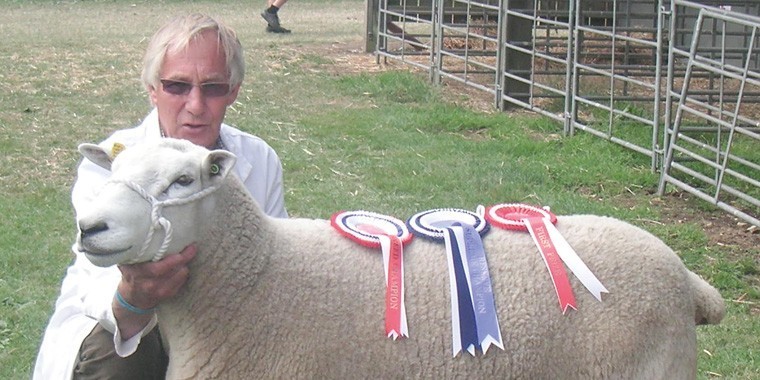A few hot days and some nice warm rain and the grass is now on a mission to catch up on lost time.
Nature does seem to have a desire to compensate for the bad times and now conditions have come right the danger is that grass will race away to try to achieve what it sets out to do every spring – i.e. to flower and seed. So the topper is likely to be a very important management tool for grass this season to sustain good fresh grass growth going into the summer.
I am sorely tempted to sub divide some of my paddocks to graze the sheep a bit tighter and improve efficiency of my grassland use – something I’m sure that most of us could do. In general we tend to take grass for granted and don’t use it as well as we should. But with grass and forages costing five to 10 pence per kilogram of dry matter compared to 25 to 30 pence per kg of dry matter from concentrates (e.g. creep feed) it seems like common sense to make more efficient use of the former, and it is certainly more sustainable.
On the subject of sustainability, there are some within the European Union that are attempting to drive forward radical changes in the way in which agriculture is supported, with a shift away from direct support to a system of payments targeted at reducing the impact on producer incomes of the sort of price volatility that we are seeing increasingly as we trade more and more in a global market.
Support would be targeted at encouraging more sustainable production systems of quality food and national food resilience (what at one time we called self sufficiency). Again this seems like common sense: the origins of the common agricultural policy were in a time when European agriculture was still struggling to recover from the consequences of the second world war, with a very strong focus on increasing agricultural output simply to put enough food on retailers shelves. This mindset still drives a lot of EU agricultural policy.
We are, however, a long way from that situation now. Most people across the UK and Europe have plenty to eat – some rather too much – and the focus is now very much on the consumption of good quality, healthy foods produced in an environmentally friendly and sustainable manner, which is where we should really be directing policy and support. Targeted support rather than the current open ended and inefficient system.
Future EU agricultural policy may however not be of any direct concern of ours going forward. The “in, out” debate is now beginning to hot up and current polls seem to indicate that it will be a fairly close race right up until the end. Not that the quality of the debate to date has been terribly edifying. At times it has even been cringingly embarrassing with the “in” lobby seeming to rely on scare stories and the “out” lobby apparently living in a world of their own, where we will simply be able to slip into a cosy EU/UK trade relationship with no conditions attached in a Utopian ideal where the rest of the world will be tripping over each other to trade with us.
It is time for a bit of a reality check and honesty, on both sides. At least now voters do seem to be considering some of the more important aspects of the debate, i.e. the economy. At one time it looked as if people’s voting decision were going to be based almost entirely on the issue of migration (“xenophobia rules OK”). Personally I am still undecided: I can see pros and cons of both sides of the argument, but what I do require – and I’m sure the same applies to many others – is quality, meaningful, unbiased information, the sort of information that will enable any thinking person who cares enough about the whole situation to make a considered and meaningful decision.
Leaving the EU would be an enormous step for the UK and in the short term it could decimate UK sheep production. After all about 30% of what we produce is exported to Europe, and any changes that have a significant impact on that trade would have big consequences for all UK sheep producers.
Longer term, particularly if we see a substantial reduction or redirection of support, we would almost certainly see a leaner, but very much fitter sheep sector in the UK. EU support has made life rather too comfortable for a lot of producers and has undoubtedly stifled innovation. Some producers will almost certainly not be able to cope with the changing production environment and leave the industry, but the innovative and the committed will remain, we will still have a sheep industry, just a different one.
By the time I write my next copy for South East Farmer the decision will be made, a momentous decision that will affect us all for a long time to come. We will either maintain the status quo – maybe with a renewed incentive to change things from within – or we will be embarking on a transitional period to life outside the EU. Do get out and vote, but do make sure that yours is a considered vote, based on what really matters for the UK and for us all.




